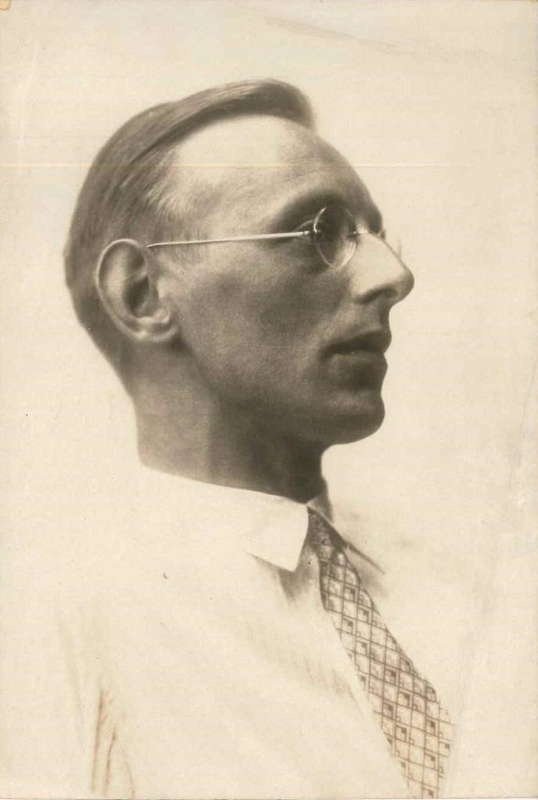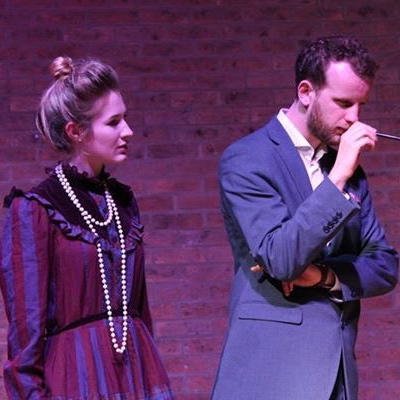 CENTRAL ENGLAND: Mike Wheeler's concert reviews from Nottingham and Derbyshire feature high profile artists on the UK circuit - often quite early on their tours.
CENTRAL ENGLAND: Mike Wheeler's concert reviews from Nottingham and Derbyshire feature high profile artists on the UK circuit - often quite early on their tours.
Vivid Imagery
MIKE WHEELER's thoughts on music by Jenni Brandon, Eric Whitacre and Carl Orff, played by Nottingham Trent University Choir, the University of Nottingham Choir and the BBC Concert Orchestra
The BBC Concert Orchestra was back in Nottingham after its two Proms concerts in September. This time, it was to firm up its partnership with the city's two universities - Royal Concert Hall, Nottingham, UK, 4 December 2024.
Before joining together in Part II, the two University choirs opened the concert with works by two living American composers. Nottingham Trent University and choral director Matthew Hopkins began with Tonight, A Stolen Moment by Jenni Brandon - a name previously new to me - in the version with piano, string quartet and percussion. Bobbi J Nicotera's poem explores the thoughts and feelings of a family forced to leave home - we are not told why - centring on images of memories, possessions that had to be left behind, journeys by boat and train towards a better life in America, and stars, 'the only jewels I now possess', as the poem's narrator describes them. The singers showed complete commitment to this picture of disrupted lives, with the instrumentalists vividly suggesting pictorial elements, from the undulating, barcarolle-like opening for string quartet, to the train-like drum rhythms, and the glockenspiel stars. There was an apt suggestion of menace as the narrator began 'to think of what we left', and the approach to the new land was accompanied by a kind of tranquil apprehension.

Jenni Brandon
Vivid imagery also informs Eric Whitacre's Leonardo Dreams of his Flying Machine, sung by the choir of the University of Nottingham, with choral director Rachel Parkes. The text is by Whitacre's long-standing collaborator, Charles Anthony Silvestri, with lines in Italian taken from Leonardo's sketchbooks, inserted as though he was personally interjecting. The declamatory opening had plenty of vigour, while there were sudden switches to moments of deep contemplation at later points. Choral special effects came off with total assurance - midnight bell sounds, and, following real tension as Leonardo prepared to take his great leap, the mouth music, with underlying drum patterns, representing his flight, and 'sh' sounds as the texture thinned and dipersed.

Eric Whitacre. Photo © Nate Ryan
Part II was taken up by Carl Orff's Carmina Burana, for which the university choirs were joined by the Choristers of Southwell Minster, soloists Fflur Wyn, soprano, Levy Sekgapane, tenor, and Morgan Pearse, baritone, and the full orchestra. It's not a favourite piece of mine, but I readily concede that everyone's fierce conviction carried it on this occasion. BBC Radio 3 presenter Elizabeth Alker's introduction included a few questions for conductor George Jackson, beginning with: why did he think the piece was immediately popular from its first performance. 'It's loud' was his immediate response. The opening chorus certainly erupted with an almost physical impact, though I tend to think that the best numbers are the quiet ones, such No 3, 'Veris leta facies', describing spring's arrival, to which the semi-chorus gave a real sense of freshness.

Carl Orff in 1940 by Hans Holdt
The men of the chorus certainly let their hair down in the tavern scene, though you have to wonder whether all that drinking was not actually much fun in the end. Levy Sekgapane enjoyed his moment in the spotlight as the roasting swan, joined by John McDougall's lamenting bassoon, and Morgan Pearce vividly inhabited the role of the boozy abbot not fussy about the company he keeps.
Elsewhere, the Southwell choristers brought a cherubic innocence to 'Amor volat undique' (Love flies everywhere - mischievously, I couldn't help wondering how much they'd been told about what the Latin words mean). The tender warmth Fflur Wyn brought to 'In trutina' turned to outright ecstasy in 'Dulcissime'.
So no, you couldn't fault the performance on any count, from singers or orchestra. As to the piece itself though, I remain unconvinced.
Oddly, it was left to members of the orchestra to lead a cheer for the Southwell choristers after the performance, while conductor and soloists were momentarily offstage.
Copyright © 13 December 2024
Mike Wheeler,
Derby UK




